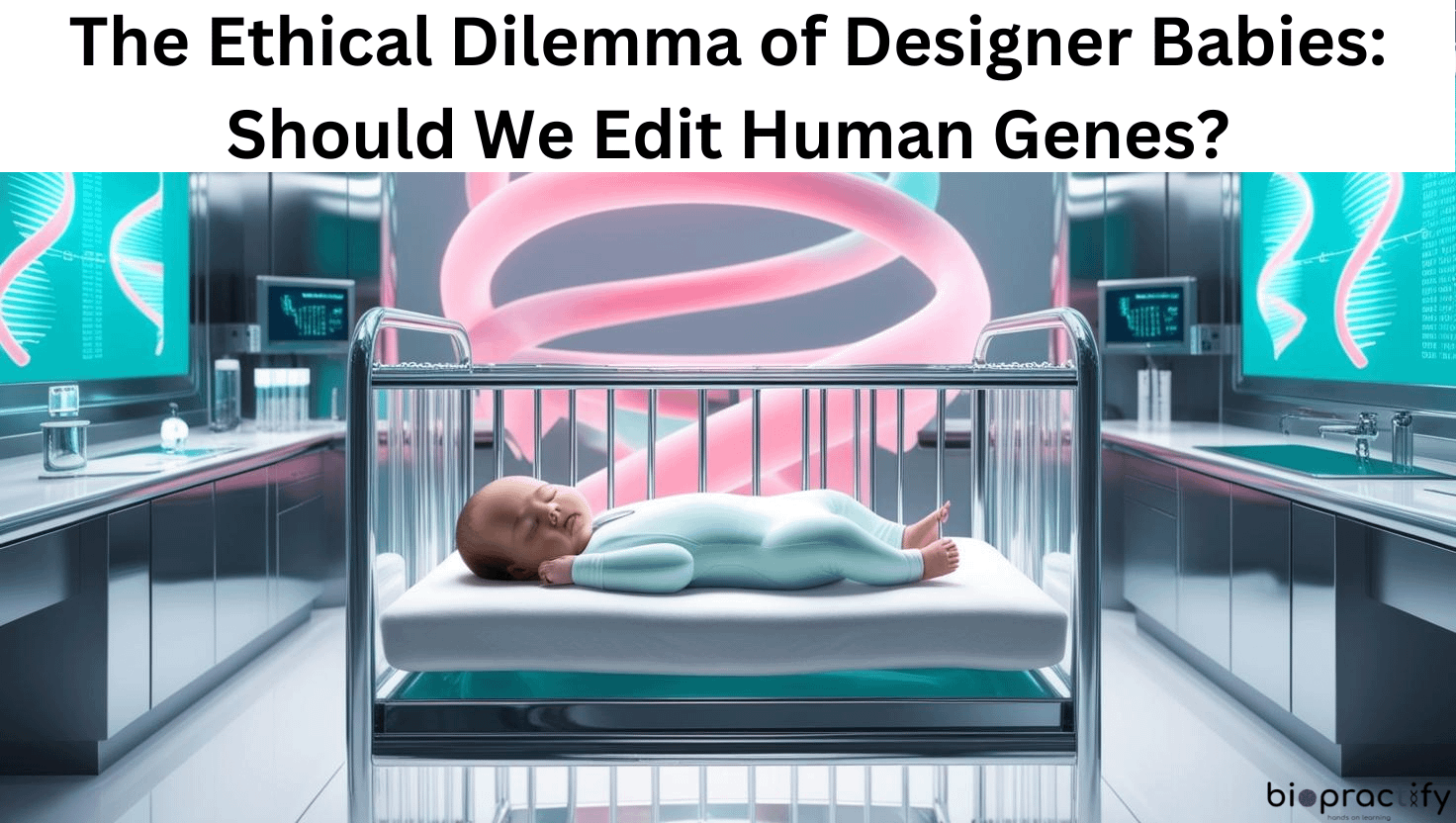Advancements in genetic engineering have sparked debates about designer babies—a concept where parents can edit the genes of their unborn children. With technologies like CRISPR, it’s now possible to alter DNA, potentially removing genetic diseases or even enhancing physical and intellectual traits. But should we edit human genes? This question brings serious ethical concerns.

What Are Designer Babies?
Designer babies refer to genetically modified embryos where scientists edit DNA to achieve a desired trait. This can include:
- Eliminating genetic diseases like cystic fibrosis or sickle cell anemia.
- Enhancing intelligence, height, or athletic abilities.
- Choosing physical traits such as eye or hair color.
The rise of gene editing in humans is both exciting and controversial. While it promises medical breakthroughs, it also raises moral, social, and scientific concerns.
Should We Edit Human Genes? The Ethical Debate
The ethical dilemma of designer babies revolves around key concerns:
1. Health Benefits vs. Playing with Nature
Editing human genes could save millions of lives by preventing genetic disorders. However, many fear this could lead to a future where people customize their children like products.
- Pros: Prevents hereditary diseases and improves health.
- Cons: Unpredictable side effects could create new health risks.
2. Social Divide: Only for the Rich?
If genetic modifications become expensive, only wealthy families may afford them, creating a genetic divide where the rich have “superior” babies while others don’t.
- Pros: Could reduce overall healthcare costs by preventing diseases.
- Cons: May create inequality and discrimination based on genetic traits.
3. Loss of Genetic Diversity
Nature thrives on genetic variation. If everyone edits their child’s DNA to remove flaws, we could lose natural evolution and biological diversity.
- Pros: Eliminates inherited genetic disorders.
- Cons: Could make humans more vulnerable to unknown diseases.
The Future of Gene Editing: What’s Next?
Scientists are still exploring how far gene editing should go. While some support using it for medical reasons, others warn against using it for cosmetic or intelligence enhancement.
- Read more on genetic engineering in medicine.
- Learn about the impact of gene therapy from our blog.
Conclusion
The ethical dilemma of designer babies: should we edit human genes? is a serious debate with no simple answer. While gene editing can cure diseases and improve lives, it also poses risks and ethical concerns. The key is finding a balance between medical progress and ethical responsibility.


Leave a Reply